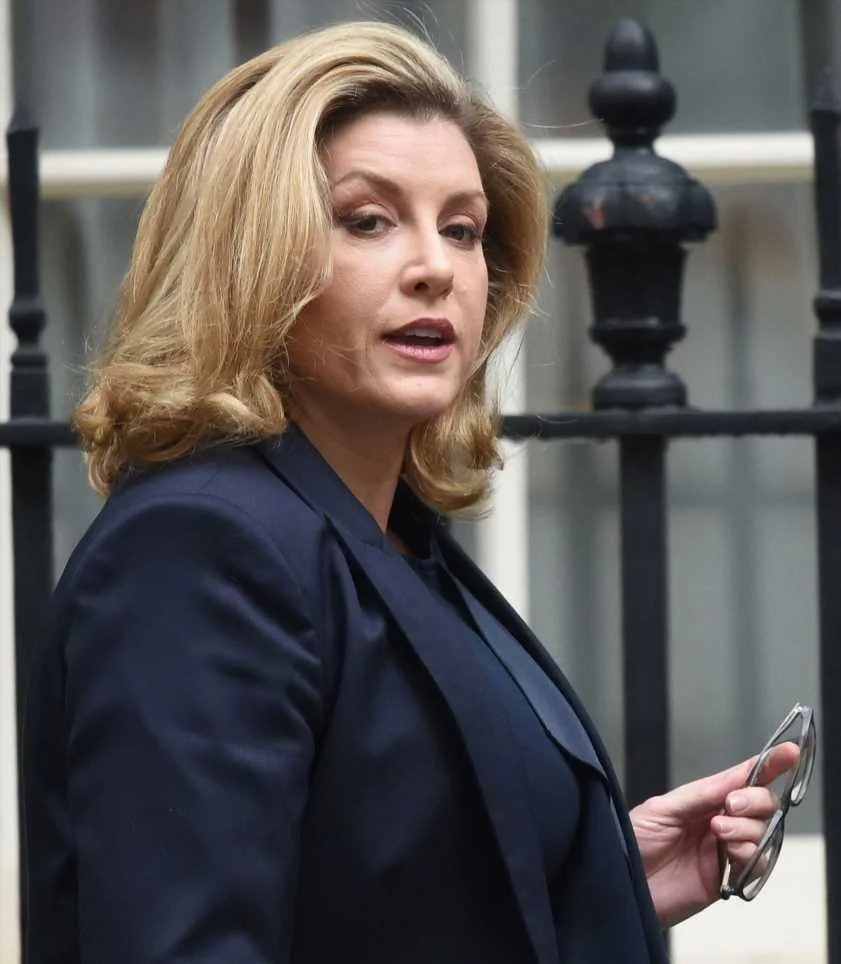PENNY MORDAUNT: ‘OUR COMMS IS S**T!’
A fascinating article in PR Week this week reports Penny Mordaunt’s view that Conservative Party communications are “s**t”. She reportedly added “Does anyone know anyone that can help us? Anyone know anyone who works in comms?”
Ms Mordaunt, who is currently leader of the House of Commons, knows what she is talking about as her career before politics included roles as the Conservative Party’s head of broadcasting, head of foreign press for George W. Bush’s US presidential campaign, communications director for the Royal Borough of Kensington and Chelsea, campaigns director at Diabetes UK, and associate at Hanover. She was also deputy director of communications for the Big Lottery Fund, and one of the founders of political consultancy Media Intelligence Partners.
She made her comments at a Conservatives in Communications event at the annual Conservative Party Conference in Birmingham and was perhaps hoping that some of the guests assembled would step up to help. However, what is perhaps not so widely known is that the very reason Conservatives in Communications was set up in 2013 was to support the Conservative Party with their communications. I should know – I was there – I was a founding Board member.
Conservative Party communications have not been as good as they could be for a very long time. Conservatives in Communications was founded to gather together all London’s leading Conservative communications professionals with the express aim of providing professional communications support to the Conservative party on a pro bono basis. We started off with great ideas and great enthusiasm but it didn’t take long for the Conservative administration of the day to decide that professional help was not required. As a result, Conservatives in Communications lost its original purpose and transformed itself into a networking group instead.
Political communication is never easy and especially so for a party in power, facing the bright and relentless glare of media and other scrutiny. There are infinite, very complex challenges. Yet it is hard to understand how so much can go so consistently wrong. As the PR Week article sets out, the last week alone has seen repeated muddle, contradiction and confusion at No 10, the Treasury and BEIS, on top of a major government U-turn over the 45p rate of income tax. This comes in the midst of chaos in the financial markets, entirely due to the Chancellor’s mini-budget, which was by all accounts fatally weakened by a lack of prior engagement with key stakeholders (including the markets). In other words, it was perceived by those most directly concerned to have come ‘out of the blue’, without explanation or reasoning. All this, on the back of existing volatility, including energy and cost of living crises and the nuclear threat in Ukraine.
We are less than one month in to Liz Truss’s government yet her communications appear to be as chaotic as her predecessor’s. And whilst Boris Johnson’s ability to communicate helped him reach the heights of power, it should not be forgotten that his inability to communicate consistently, clearly, truthfully and authentically was ultimately responsible for his downfall.
In May 2021, I wrote about ‘the Velcro Effect’, an academic concept that helps us understand how an organisation in a crisis appears to accelerate out of control, gathering in more and more damaging developments as it goes.
The Velcro Effect, so called by acclaimed crisis academic, Dr Timothy Coombs, explains how an organisation’s poor prior reputation affects how stakeholders make a decision on its culpability. Essentially, if your organisation has a record of bad behaviour the next development which brings your behaviour into question is much more likely to be seen in a negative way. Stakeholders tend to make up their minds very quickly; negative perceptions build towards a crescendo and with each iteration the reputational damage to the organisation intensifies. If left unchecked, a tipping point will be reached that is essentially a point of no return.
Bringing the outside in: never lose sight of external perspectives
The importance for organisations in understanding and respecting the opinions and perceptions of their stakeholders cannot be overstated.
Communications that show and reflect an understanding of stakeholders’ feelings and concerns is essential. Emotional intelligence is key, and communications that are nuanced are essential to support, reassure and persuade the different groups of stakeholders. Atonal, “tin-eared” (as Grant Shapps, former Secretary of State for Transport has put it), black and white messaging will only backfire.
Would Partygate ever have happened if Downing Street had absorbed an external perspective and really understood (and be seen to have respected) the feelings of its stakeholders? For the Johnson government, what might once have started as a relatively small issue in No 10 Downing Street became a series of crises engulfing the government which contaminated the Conservative brand and resulted in the removal of that Prime Minister. An early consideration of the attitudes and behaviours of voters would arguably have avoided the crisis and all its impacts, which have been demonstrably far reaching.
Liz Truss is a new Prime Minister and I wish her every success, but she was a long-standing and familiar face around the cabinet table of both Boris Johnson and his predecessors. For good or for ill, she has inherited much of what they leave behind. If she wishes to win the next election, isn’t it time to dramatically improve Conservative communications and isn’t it time to invest in properly understanding the feelings and perceptions of stakeholders, truly ‘bringing the outside in’? The size of the government’s communications remit and the scale of the challenge its faces are, of course, unparalleled and Directors of Communications tend to focus on media relations, for obvious reasons. Yet given the clear need the Party has for better reputation management and resilience in the long term, shouldn’t it also have a permanent, professional Director of External Affairs, focused on stakeholder management, audience insight and crisis preparedness?

